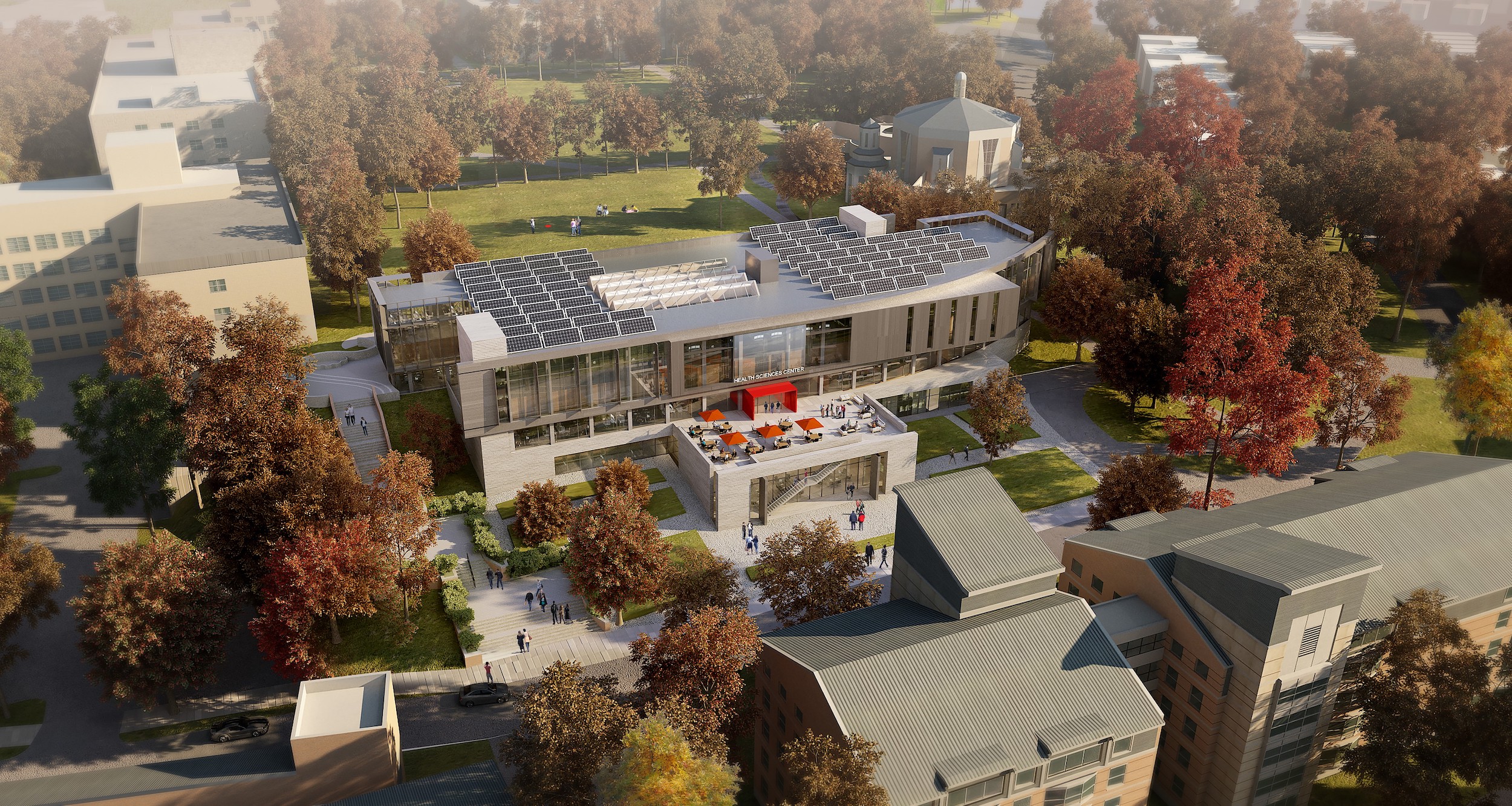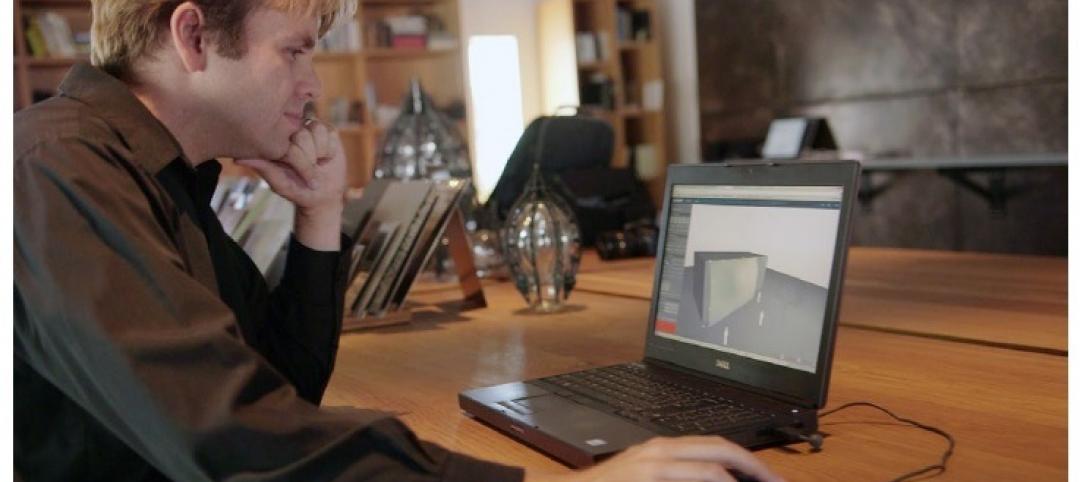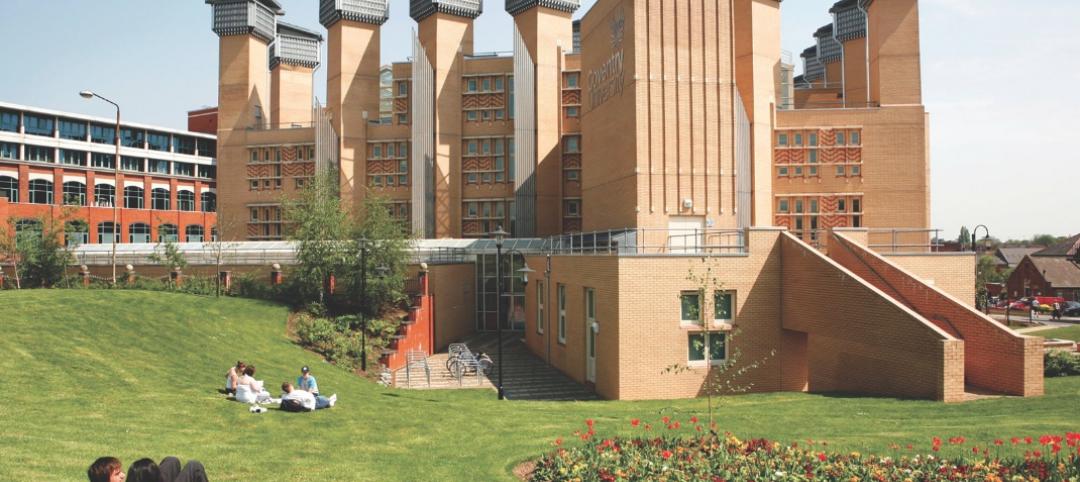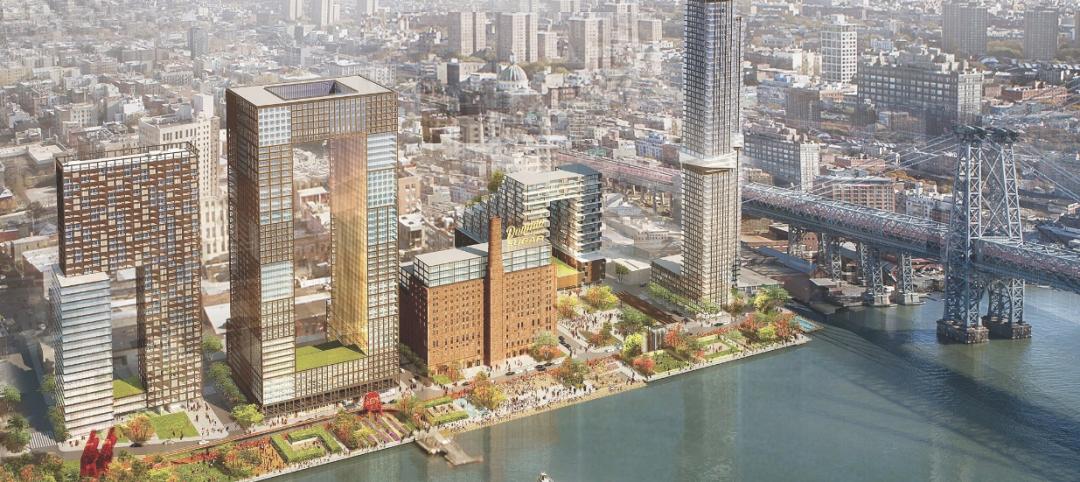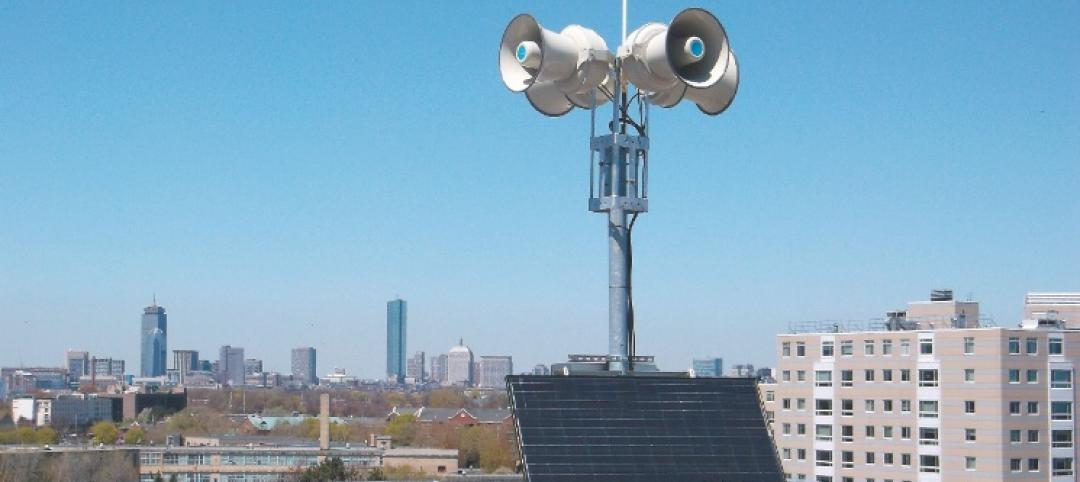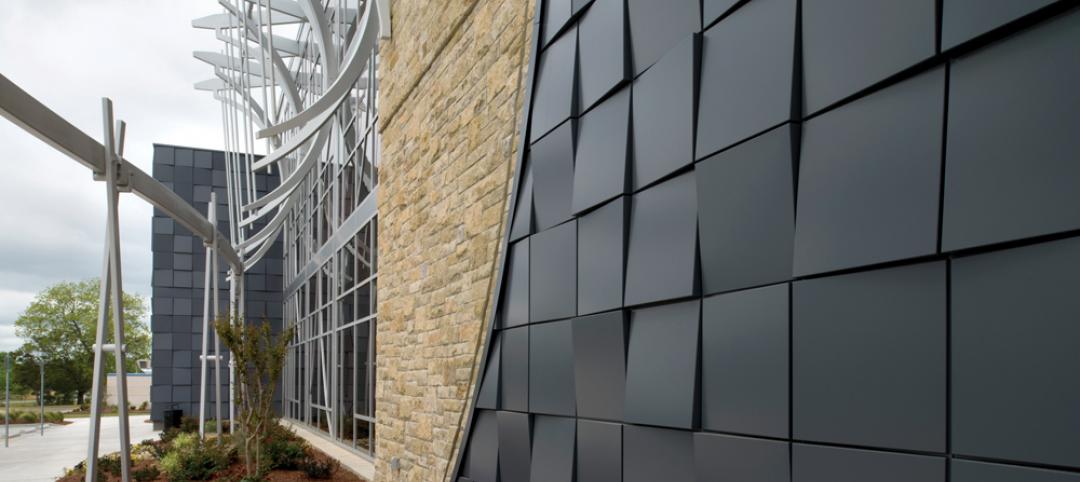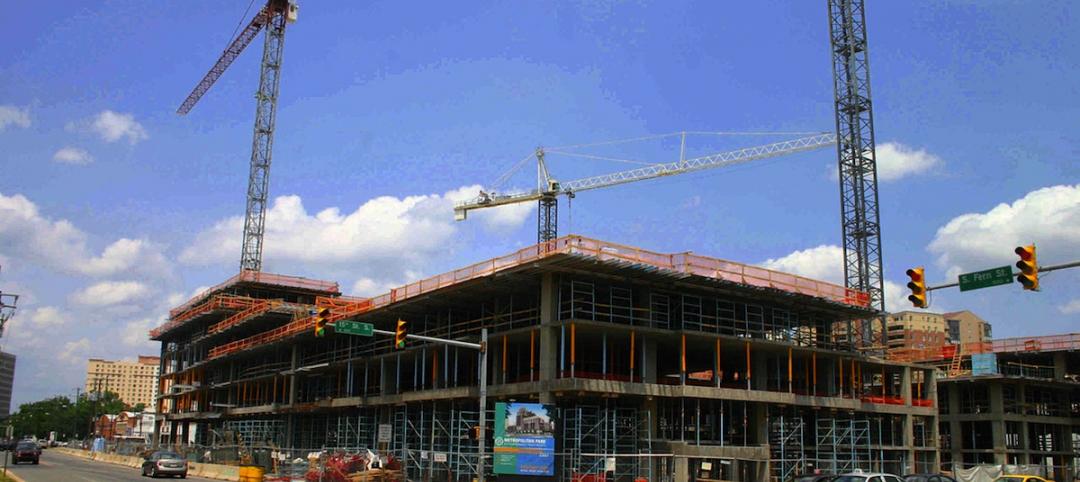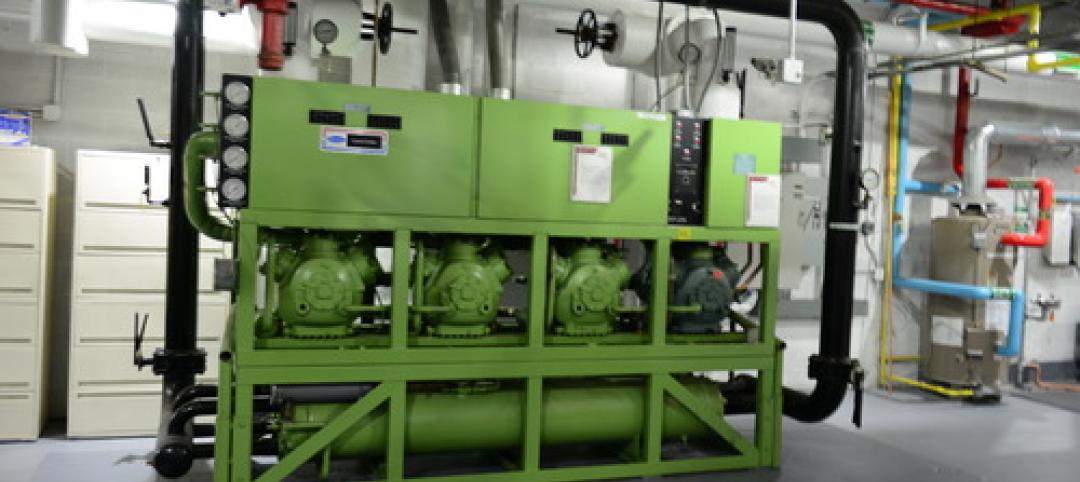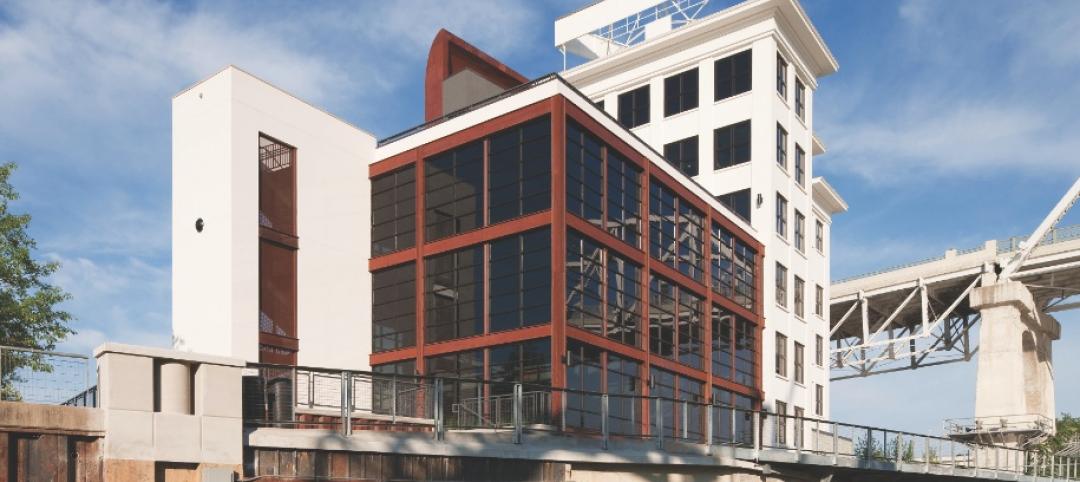The recently topped off St. Vincent Health Sciences Center at St. John’s University in New York City will feature impressive green features, including geothermal heating and cooling and an array of rooftop solar panels. The geothermal field consists of 66 wells drilled 499 feet below ground which will help to heat and cool the 70,000-sf structure.
High-performance, energy-efficient windows will reduce thermal loss. The elongated east-west floor plan of the building will maximize daylight, and skylights will help reduce artificial lighting usage by 22% during daylight hours. State-of-the-art building control systems will optimize lighting, space occupancy, and temperature throughout the building. The facility is projected to be one of the greenest buildings on campus.
The bright, sun-splashed Dorethea and Nickolas Davatzes Atrium will welcome visitors as they enter from the Great Lawn. The center will feature state-of-the-art classrooms, cutting-edge laboratories, patient simulation facilities, and transformative virtual reality technology to support real-world clinical training that is redefining what is possible in the healthcare industry, according Shawmut Design and Construction, the project's construction manager.
When complete, the building will feature collaborative spaces, outdoor terraces, and attractive vistas to become a hub for generations of caregivers, healthcare professionals, and individuals who are committed to improving the lives of others. The facility is scheduled to open in 2024.
Owner and/or developer: St. John’s University
Design architect: CannonDesign
MEP engineer: CannonDesign
Structural engineer: CannonDesign
Construction manager: Shawmut Design and Construction
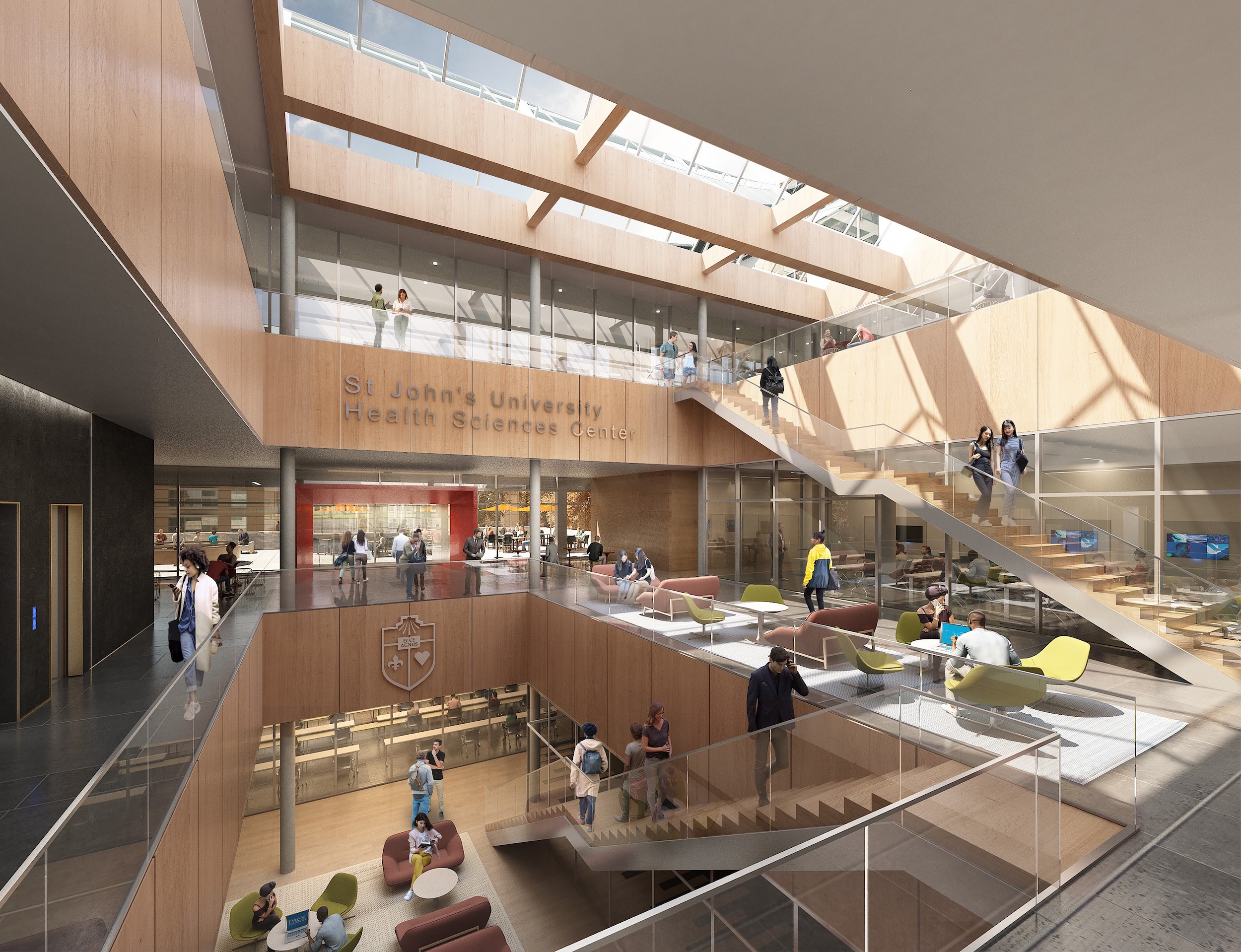
Related Stories
| Jan 13, 2014
Custom exterior fabricator A. Zahner unveils free façade design software for architects
The web-based tool uses the company's factory floor like "a massive rapid prototype machine,” allowing designers to manipulate designs on the fly based on cost and other factors, according to CEO/President Bill Zahner.
| Jan 11, 2014
Getting to net-zero energy with brick masonry construction [AIA course]
When targeting net-zero energy performance, AEC professionals are advised to tackle energy demand first. This AIA course covers brick masonry's role in reducing energy consumption in buildings.
| Jan 8, 2014
Strengthened sprinkler rules could aid push for mid-rise wood structures in Canada
Strengthened sprinkler regulations proposed for the 2015 National Building Code of Canada (NBCC) could help a movement to allow midrise wood structures.
Smart Buildings | Jan 7, 2014
9 mega redevelopments poised to transform the urban landscape
Slowed by the recession—and often by protracted negotiations—some big redevelopment plans are now moving ahead. Here’s a sampling of nine major mixed-use projects throughout the country.
| Dec 13, 2013
Safe and sound: 10 solutions for fire and life safety
From a dual fire-CO detector to an aspiration-sensing fire alarm, BD+C editors present a roundup of new fire and life safety products and technologies.
| Dec 10, 2013
16 great solutions for architects, engineers, and contractors
From a crowd-funded smart shovel to a why-didn’t-someone-do-this-sooner scheme for managing traffic in public restrooms, these ideas are noteworthy for creative problem-solving. Here are some of the most intriguing innovations the BD+C community has brought to our attention this year.
| Nov 27, 2013
Wonder walls: 13 choices for the building envelope
BD+C editors present a roundup of the latest technologies and applications in exterior wall systems, from a tapered metal wall installation in Oklahoma to a textured precast concrete solution in North Carolina.
| Nov 26, 2013
Construction costs rise for 22nd straight month in November
Construction costs in North America rose for the 22nd consecutive month in November as labor costs continued to increase, amid growing industry concern over the tight availability of skilled workers.
| Nov 25, 2013
Building Teams need to help owners avoid 'operational stray'
"Operational stray" occurs when a building’s MEP systems don’t work the way they should. Even the most well-designed and constructed building can stray from perfection—and that can cost the owner a ton in unnecessary utility costs. But help is on the way.
| Nov 15, 2013
Greenbuild 2013 Report - BD+C Exclusive
The BD+C editorial team brings you this special report on the latest green building trends across nine key market sectors.


